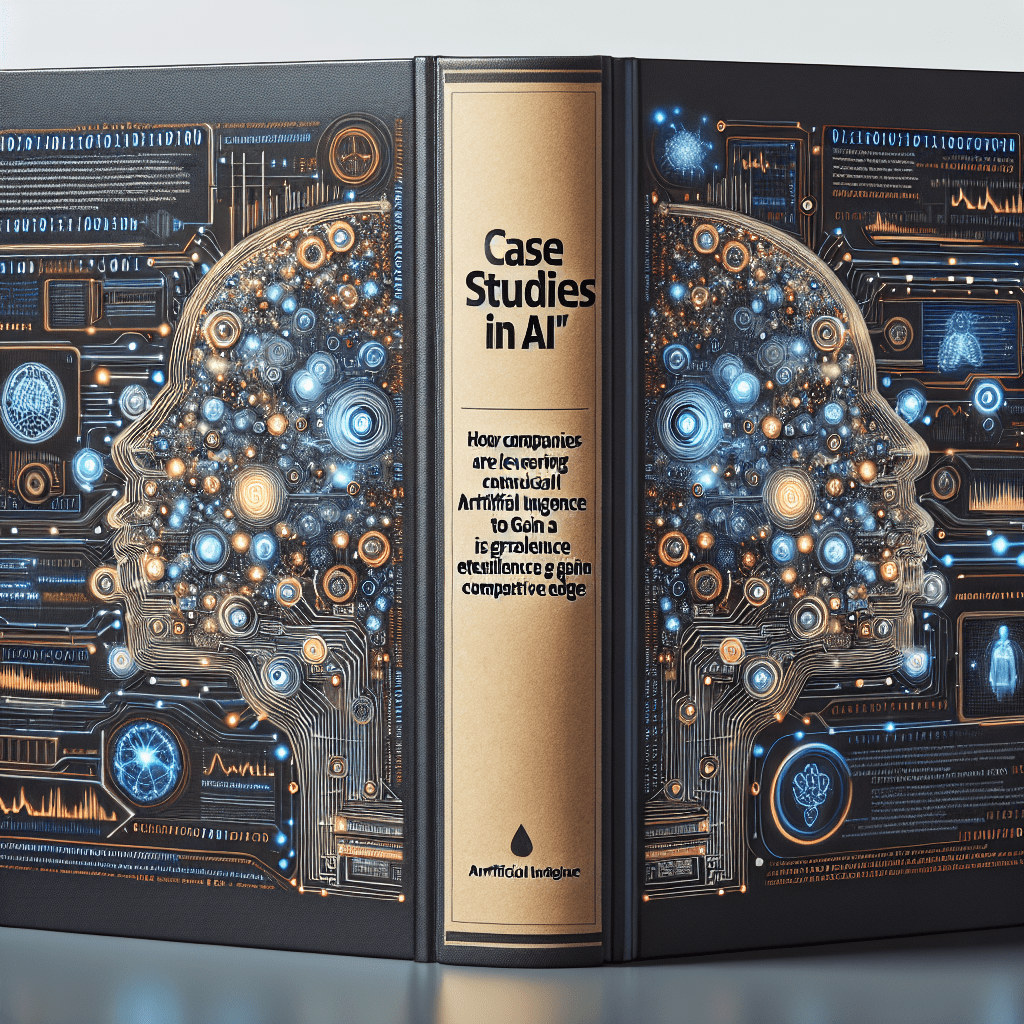Artificial Intelligence (AI) has become a game-changer for businesses looking to gain a competitive edge in today’s fast-paced digital world. By leveraging AI technologies, companies have been able to improve efficiency, boost productivity, enhance decision-making processes, and ultimately drive revenue growth. In this article, we will explore some real-world case studies of companies that have successfully implemented AI solutions to stay ahead of the competition.
Case Study 1: Amazon
Amazon is a prime example of a company that has embraced AI to revolutionize the e-commerce industry. The e-commerce giant uses AI algorithms to analyze customer data and predict purchasing behavior, enabling personalized product recommendations. This has resulted in a significant increase in sales and customer satisfaction. Additionally, Amazon’s AI-powered chatbot, Alexa, has become a household name, providing users with a seamless shopping experience through voice commands.
Case Study 2: Netflix
Netflix is another company that has harnessed the power of AI to transform the entertainment industry. The streaming service uses AI algorithms to analyze user viewing habits and preferences, allowing for personalized content recommendations. This has led to increased user engagement and customer retention. Netflix also uses AI to optimize its content delivery network, ensuring seamless streaming experiences for users around the world.
Case Study 3: Tesla
Tesla is at the forefront of innovation in the automotive industry, thanks in large part to its use of AI technologies. The electric car manufacturer utilizes AI algorithms to improve autonomous driving capabilities, enhance vehicle performance, and optimize energy efficiency. Tesla’s AI-powered features, such as Autopilot, have set the company apart from traditional automakers and positioned it as a leader in the emerging field of self-driving vehicles.
Case Study 4: Starbucks
Starbucks has integrated AI into its operations to enhance customer experiences and drive sales. The coffee chain uses AI-powered predictive analytics to optimize its inventory management, ensuring that stores are stocked with the right products at the right time. Starbucks also leverages AI chatbots to streamline customer interactions and provide personalized recommendations. These efforts have resulted in improved operational efficiency and increased customer loyalty.
Conclusion
These case studies demonstrate the vast potential of AI to transform businesses across various industries. By leveraging AI technologies, companies can gain valuable insights, streamline operations, and deliver personalized experiences to customers. As AI continues to evolve and become more accessible, companies that embrace this technology will have a significant competitive advantage in the market.
FAQs
What is AI?
AI, or Artificial Intelligence, refers to the simulation of human intelligence processes by machines, typically computer systems. AI technologies enable machines to learn from data, adapt to new information, and perform tasks that would typically require human intelligence.
How can companies benefit from AI?
Companies can benefit from AI in numerous ways, including improved decision-making processes, enhanced productivity, increased efficiency, personalized customer experiences, and revenue growth. By leveraging AI technologies, companies can gain a competitive edge in today’s digital economy.
Is AI only for large corporations?
No, AI is not limited to large corporations. Small and medium-sized businesses can also benefit from AI technologies by leveraging cost-effective AI solutions and services. Many AI Platforms are designed to be scalable and customizable, making them accessible to businesses of all sizes.
Quotes
“AI is the new electricity. Just as electricity transformed industries in the past century, AI is set to revolutionize businesses in the 21st century.” – Andrew Ng
#Case #Studies #Companies #Leveraging #Artificial #Intelligence #Gain #Competitive #Edge


